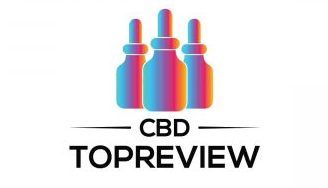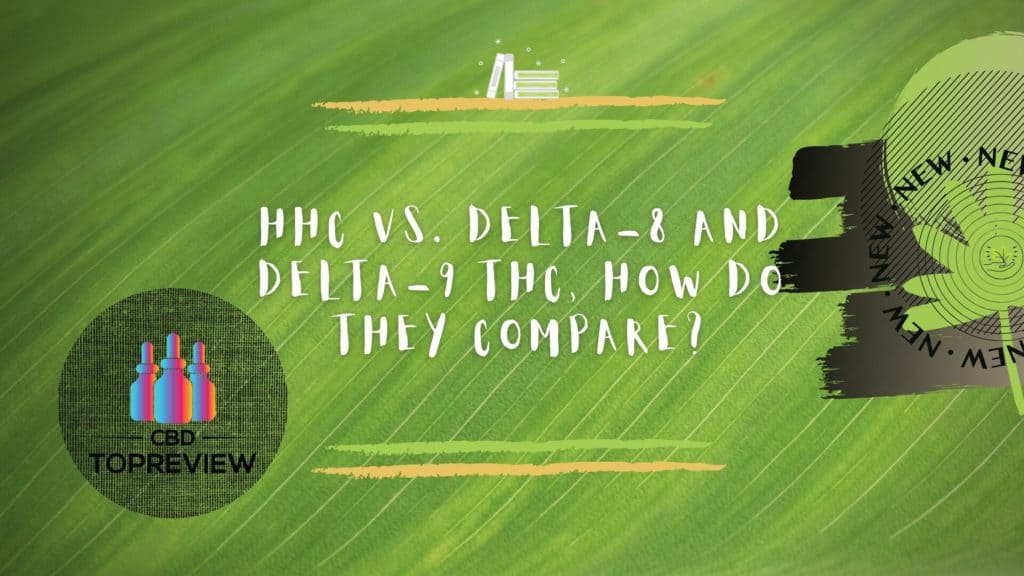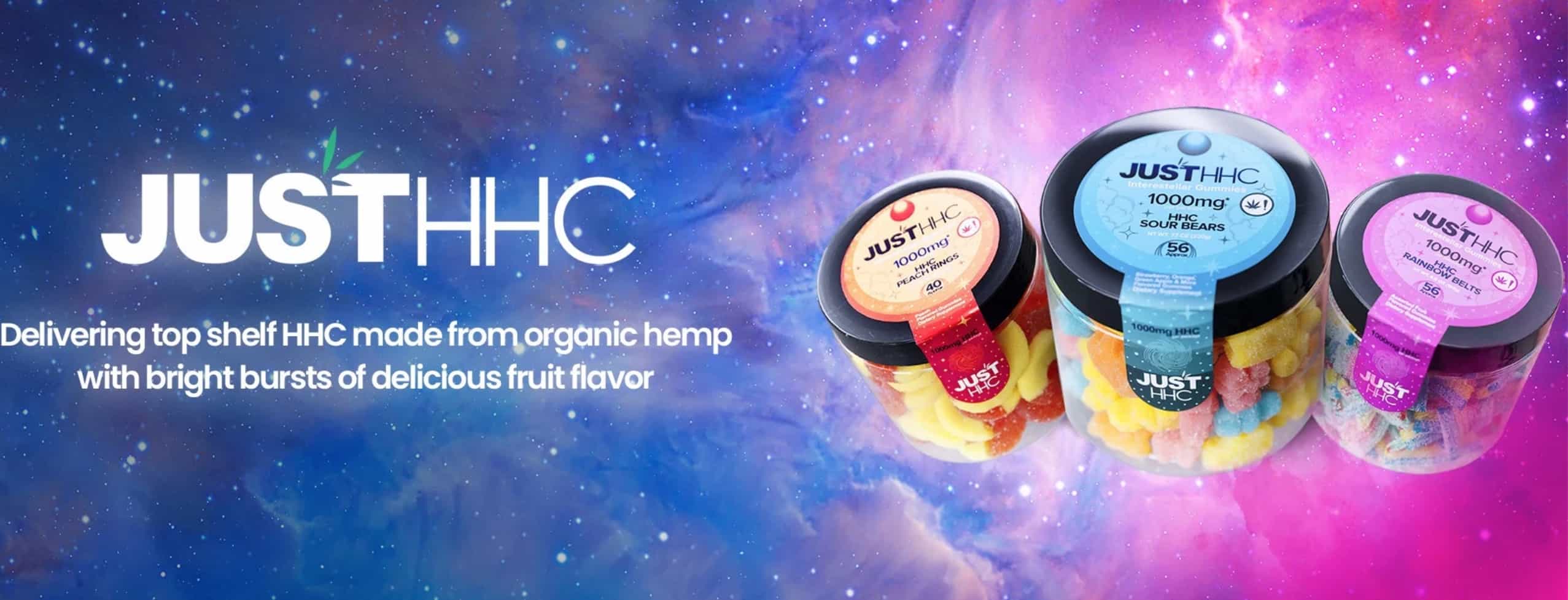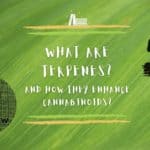Over the past 2 years, we’ve seen significant advancements in the cannabinoid hemp industry. CBD was once the driving force in hemp-derived extracts, but those days are long gone. The market has shifted from providing full and broad-spectrum CBD products to analogs of THC, 3 of the most popular being HHC, Delta-8, and hemp-derived Delta-9.
In this post, we will compare the effects, benefits, and side-effects of HHC with Delta-8 and 9 THC. After reading, you will have a better understanding of the current state of the market and be able to find the right THC counterpart for your specific needs.
What is HHC?
One of the latest analogs of THC to emerge online is HHC. The close counterpart of THC is almost identical in molecular composition, weight, and structure, allowing the compound to deliver similar effects.
HHC is a hydrogenated form of THC, meaning it includes a hydrogen molecule absent from Delta-9. While the compound is naturally found in cannabis plants, HHC must be manufactured to produce a substantial amount to infuse into products.
Effects
Users of the exciting new cannabinoid report similar effects as Delta-9. HHC releases dopamine in the brain, creating a heightened response to sensations like eating, touch, and sex.
A common estimate is 70-80% effectiveness; HHC isn’t as potent as THC but is close.
Common effects include:
- Euphoria
- Relaxation

Benefits
The benefits of HHC are also similar to THC. Users report an improvement in pain reception, sleep, and mental health conditions like anxiety and depression.
Side Effects
While the side effects of HHC are mild, they are notable, and you should be made aware when using psychoactive compounds.
- Increased heart rate
- Paranoia
- Hunger
- Decreased motor skills
- Memory loss
How do Delta-8 and Delta-9 Compare?
Delta-8 is commonly described as ‘THC lite’ or ‘diet THC’ because it has less psychoactive effects than its derivative. Many users report a sense of relaxation without the adverse side effects associated with conventional THC products.
HHC Vs. Delta-8 and Delta-9 THC
All 3 compounds are nearly identical molecularly. The effects, benefits, and side effects are similar because each interacts with cannabinoid receptors in the brain and throughout the body. Each compound binds with CB1 and CB2, but the effectiveness varies; this is why HHC and Delta-8 have less potent effects. Delta-9 is the most potent, followed by HHC, and the least intoxicating is Delta-8.
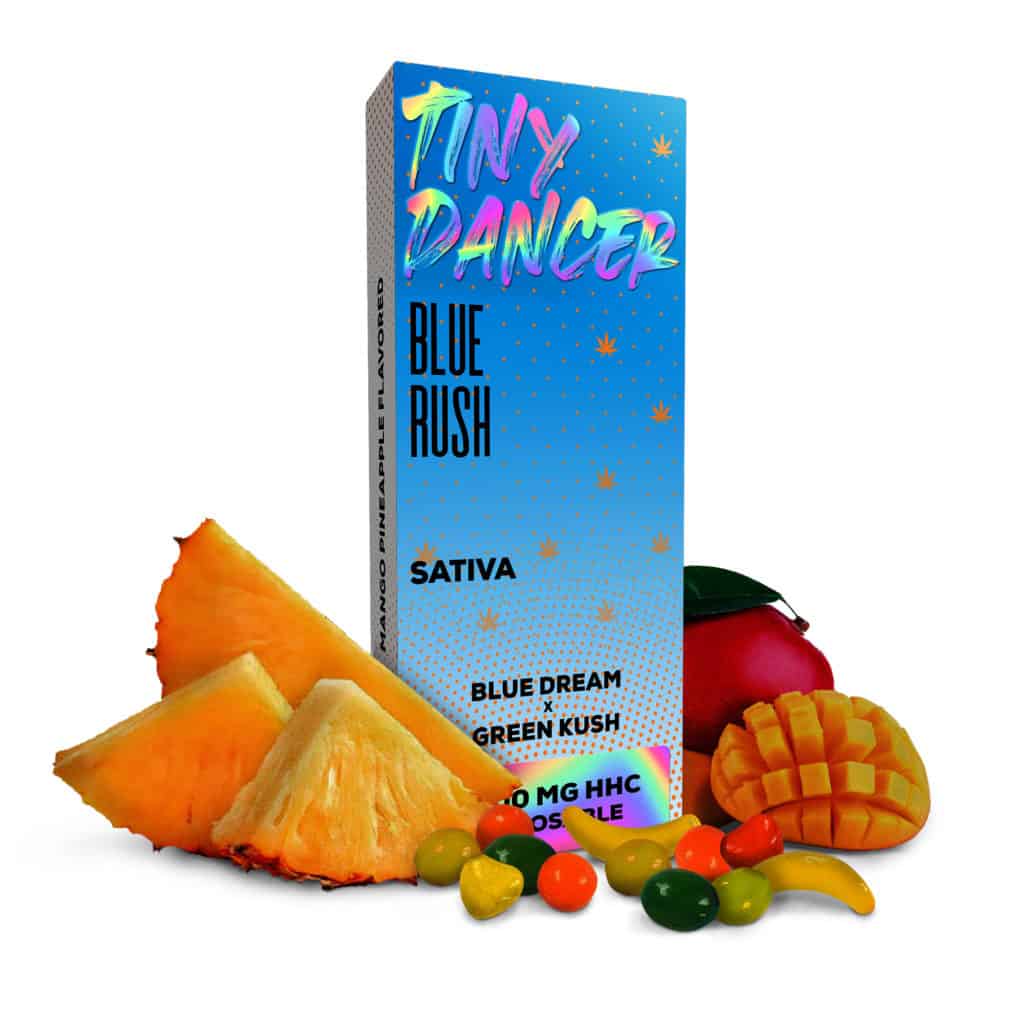
How are THC Analogs Produced?
The most significant difference between the 3 compounds is that D9 can be found naturally in cannabis plants at concentrations high enough to be extracted directly from the plant. However, in the cannabinoid hemp industry, we are now seeing Delta-9 THC coming from hemp plants.
The process of manufacturing HHC, D8, and hemp-derived D9 consist of extracting CBD from a hemp plant and converting the compound into a new cannabinoid. CBD is also molecular similar to THC, so it just requires some introductory chemistry to alter the chemical make-up and produce a THC analog.
Is Hemp-Derived THC Federally Legal?
We witnessed an incredible rise in Delta-8 THC products starting around 2020. Since then, regulators have cracked down on the compound banning it from several US states. However, some areas of the country, like Texas, have fought back by blocking bans on the compound.
Hemp-derived Delta-9 and HHC remain legal under the protection of the Farm Bill. Hemp companies can sell the compounds if the cannabinoids are derived from hemp and contain less than 0.3% Delta-9 THC concentration by dry weight.
We may see changes in the future banning HHC and hemp-derived Delta-9, but for now, the analogs of THC are sold online and shipped to all 50 states. If you are interested in trying one of these compounds, check with your local cannabis regulations to ensure you aren’t violating the law.
